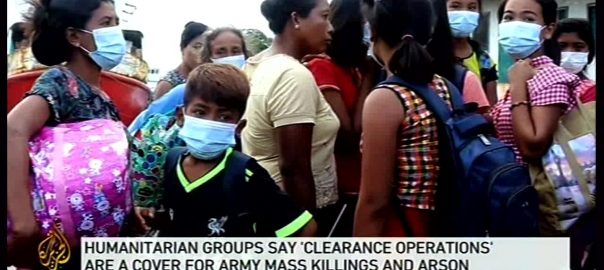June 2020. This is what life is like for the 130,000 internally displaced Rohingyas trapped in detention camps in central Rakhine state in Myanmar: in the camps, they have no future, with little access to land or livelihoods. They depend on foreign aid supplies and die of treatable diseases because of limited access to healthcare. Shelters, built in 2012 to last two years, have deteriorated. Most children can only attend basic classes at temporary learning spaces.
Burmese authorities are using Covid-19 response measures as a pretext to harass and extort Rohingyas and are doubling down on a system in which they are already effectively incarcerating the population. Rohingyas in the camps told Human Rights Watch that military and police forces regularly subject them to harassing physical punishment at checkpoints. One Rohingya woman said the police made her do sit-ups for 30 minutes for not wearing a mask through a checkpoint, after which she was too exhausted to move. Another man witnessed people being forced to perform squats at a checkpoint with their hands on their ears.
Jun 2020. Ethnic Cleansing continues in Myanmar
